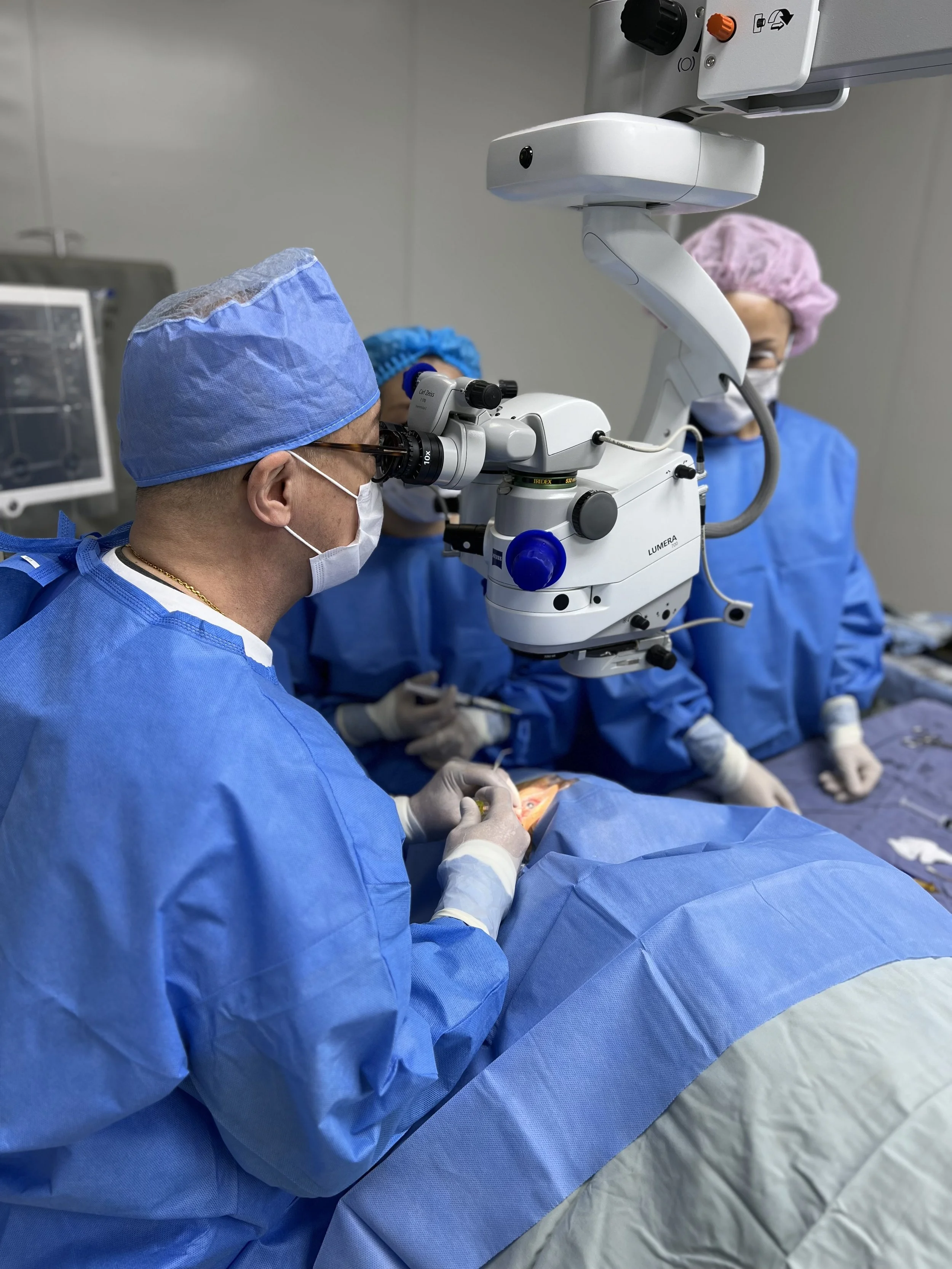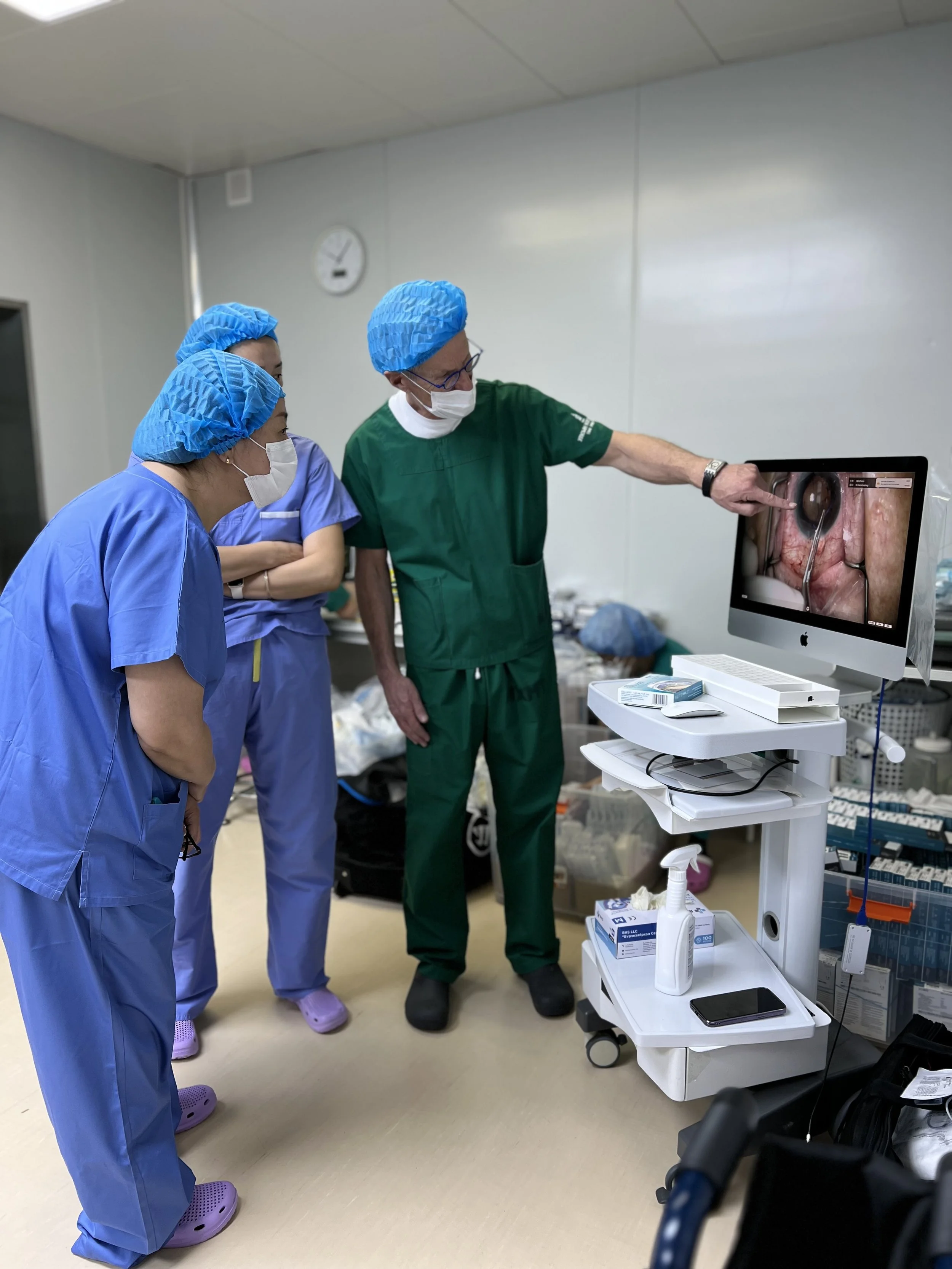Sharing Skills, Shaping Futures: Teaching Excellence at First Central Hospital
Teaching the Teachers: Elevating Surgical Education in Mongolia
During Laurel Surgical Foundation’s recent mission to Mongolia, Dr. Francis Law, an experienced ophthalmic surgeon and educator, brought a unique and transformative focus to the country’s leading eye care institution — the First Central Hospital in Ulaanbaatar. Rather than only demonstrating surgical techniques, Dr. Law focused on a critical yet often overlooked skill in medical education: teaching ophthalmologists how to teach surgery.
Why Teaching How to Teach Matters
Surgical skill is only part of what makes a strong residency program. The ability of faculty to effectively guide residents through complex procedures, provide constructive feedback, and foster independent thinking is what ensures those skills are passed on to the next generation. Dr. Law worked closely with Mongolian ophthalmologists, showing them how to break down each surgical step, create safe learning environments, and give residents opportunities to practice under supervision.
By strengthening the teaching skills of Mongolian surgeons, the impact multiplies. Every resident benefits from more structured, supportive, and effective training. This, in turn, leads to better-prepared graduates, safer patient care, and a stronger national eye health system.
Direct Benefits for Residents
For ophthalmology residents at the First Central Hospital, this initiative means more than just better lessons; it means more hands-on opportunities in the operating room. With faculty now trained to balance patient safety with resident participation, residents can gain valuable surgical experience earlier and with greater confidence. This approach not only accelerates their learning curve but also ensures they graduate as competent, independent surgeons who can serve communities across Mongolia.
By investing in the educators themselves, Dr. Francis Law and Laurel Surgical Foundation have planted seeds of change that will grow for years to come. Ensuring that surgical knowledge is not just transferred, but taught in a way that inspires, empowers, and endures.

